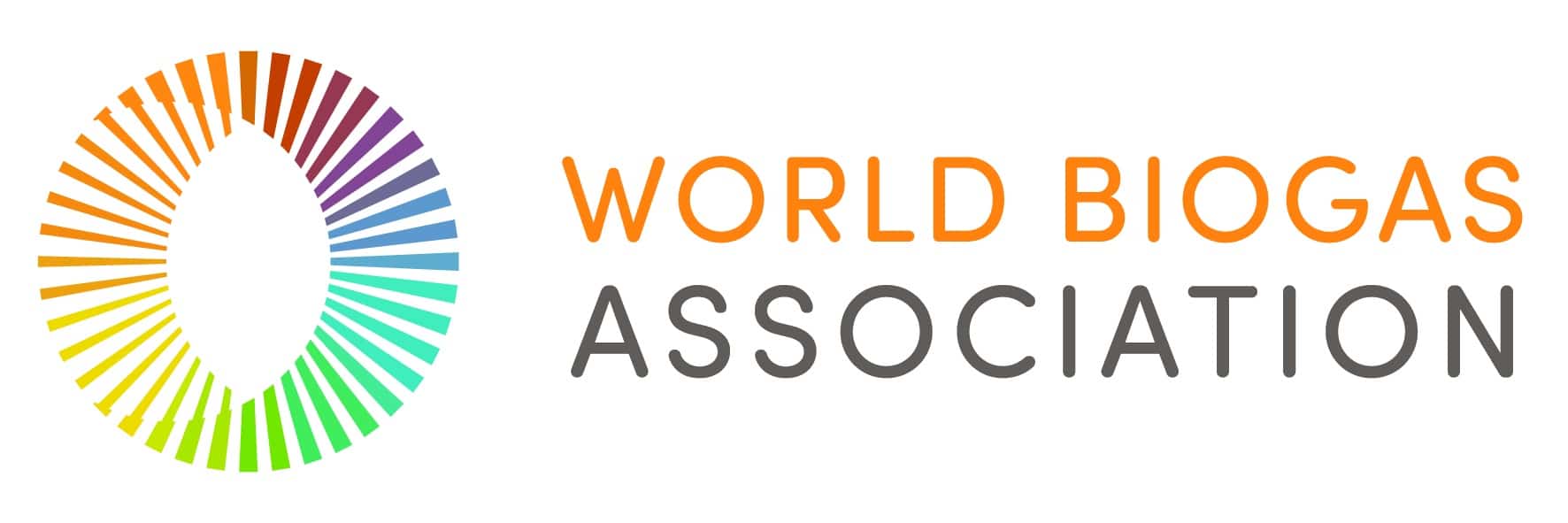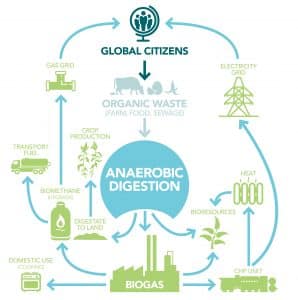
Climate emergency: anaerobic digestion dangerously overlooked as immediate mitigation solution, warns global trade body
- The latest IPCC report calls on “strong, rapid and sustained” reductions to greenhouse gas (GHG) emissions, particularly methane, within the next decade to avert a climate catastrophe.
- The World Biogas Association (WBA) urges policy makers to recognise the vital role of anaerobic digestion (AD) – which produces biogas by recycling methane-emitting organic wastes – as an immediate solution to reducing GHG emissions worldwide.
- Clear evidence and recognition from international bodies such as the UN Environment Programme, Climate & Clean Air Coalition and International Energy Agency shows that AD is a readily available, low-cost technology that can immediately help tackle climate change.
- Human activity produces 105bn tonnes of organic wastes every year globally. By treating these wastes through AD, as well as producing green gas and other valuable bioproducts, the biogas industry could deliver a reduction of over 10% in global GHG emissions by 2030.
- Biogas and biomethane (an upgraded form of biogas) are substitutes for fossil natural gas and can rapidly decarbonise carbon-intensive sectors such as transport and heat. AD technology also plays a vital role in decarbonising agriculture – which by itself generates nearly 20% of global GHG emissions.
As the Inter-Governmental Panel on Climate Change (IPCC) publishes an alarming sixth assessment report on climate change, the World Biogas Association (WBA) has renewed its call for the potential of the biogas industry to be urgently unlocked so that it can help deliver the “rapid reductions in GHG emissions and in particular methane” that the IPCC says is needed to address the climate emergency.
The warning amplifies recommendations by the UN Environment Programme (UNEP) and Climate & Clean Air Coalition (CCAC) that said that tackling methane emissions was the most immediate and cost-effective way to avert climate catastrophe. They identified AD as a readily available low-cost technology that can help reduce these emissions. The International Energy Agency (IEA) has also recognised the value of biomethane in decarbonising the energy sector, whilst the EU has embraced it in its Methane Strategy.
“Research from the WBA and other biogas trade bodies (1) and from UNEP, CCAC and the IEA, has demonstrated our industry’s potential to deliver a huge reduction in global GHG emissions, especially methane, within the next few years“, says Charlotte Morton, WBA Chief Executive. “Crucially, anaerobic digestion, the technology that produces biogas – also known as renewable natural gas or biomethane – as well as a biofertiliser, bioCO2 and other valuable bio-products, is ready to deliver on that potential now (2). What is badly missing is the political will to remove policy barriers to the growth of the sector – both at global and national levels.
“As the UK prepares to host a particularly critical COP26, and given the widely recognised opportunity to address methane emissions through AD, the British government MUST show the leadership required in speedily committing to an integrated strategy that will deliver the full potential of AD in the UK by the end of the decade and in ensuring that all other countries follow suit. Without AD fully deployed, it will simply be impossible to keep below 1.5 degrees by 2030, nor to achieve Net Zero by 2050“, she continues. “Such commitments need to be in each country’s Nationally Determined Contributions (NDCs) to the Paris Agreement – almost all of which are still failing to deliver on the targets set in 2015.
“With its latest report, the IPCC has just issued its starkest warning yet of the danger of climate change and of the need to act urgently. We are today issuing our own warning to world governments that it is dangerous to overlook the recognised power of AD as an immediate solution. With the right policy framework in place, AD can cut emissions by 10% by 2030. The global biogas industry has already made a public commitment to play its role to deliver on this potential (3). Now it is down to the world’s politicians. We’re here, we’re ready – we’re waiting for YOUR commitment, and the world needs it NOW.“
Footnotes:
(1) Industry research
WBA
The Global potential of Biogas (2019)
Biogas: Pathways to 2030 (2021)
European Biogas Association (EBA)
Biogas and Biomethane Success Stories (2020)
Anaerobic Digestion and Bioresources Association (UK)
Biomethane: the pathway to 2030 (2019)
Biomethane: fuelling a transport revolution (2021)
Biomethane and hydrogen: two green gases, one future (2021)
(2) Key facts
-
- AD is a process that transforms society’s organic wastes into valuable bioproducts: biogas, a green gas which can be upgraded to biomethane, digestate, a biofertiliser that can replace fossil-based equivalents, and bio-CO2″.
- By capturing and transforming methane-emitting organic matter into biogas and digestate, AD helps mitigate climate change as well as restore soil health. In addition to producing bioproducts, it acts as a waste management technology and therefore reduces methane at both upstream and downstream stages of the process.
- Biogas upgraded to biomethane can be directly injected into the existing gas grid and therefore immediately help decarbonise the heat sector.
- Biomethane-fuelled buses, refuse collection lorries and HGVs are already deployed in cities and by major retailers worldwide to decarbonise their operations. By fuelling an HGV with biomethane, GHG emissions can be cut by over 85%, compared to diesel.
- Digestate, the biofertiliser produced as a residue to AD, helps displace fossil-based equivalents in agriculture and restore soils. On-farm AD also helps farmers generate their own energy to power their machinery and premises.
- Biogas is highly versatile green gas, that can be converted to green hydrogen using existing technology if required. It can therefore help meet the future energy demands in both the near- and long-term.
(3) Industry commitments
The global biogas industry, led by WBA, and the UK sector, led by ADBA, have issued commitments to deliver on climate change targets:
The Biogas Industry and Climate Change Commitment Declaration (2019)
The UK AD and Biogas Industry Climate Declaration (2021)
– ENDS –
For further information, contact:
Jocelyne Bia
e: jbia@worldbiogasassociation.org
tel: +44 (0)203 716 0592
Notes to editors
- Launched at COP22 in Marrakesh in 2016, the World Biogas Association is the global trade association for the biogas, landfill gas and anaerobic digestion (AD) sectors, and is dedicated to facilitating the adoption of biogas globally. It believes that the global adoption of biogas technologies is a multi-faceted opportunity to produce clean, renewable energy while resolving global issues related to development, public health and economic growth. www.worldbiogasassociation.org
- Anaerobic digestion (AD) is the natural breakdown of organic matter when deprived of oxygen in a container called digester. The process produces biogas and a residue called digestate, which can be used as a biofertiliser. The graphic below shows the applications of biogas and digestate and circularity of the AD process.


